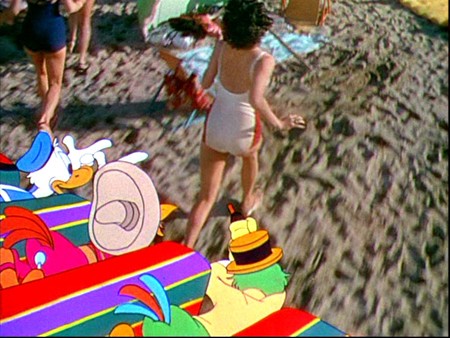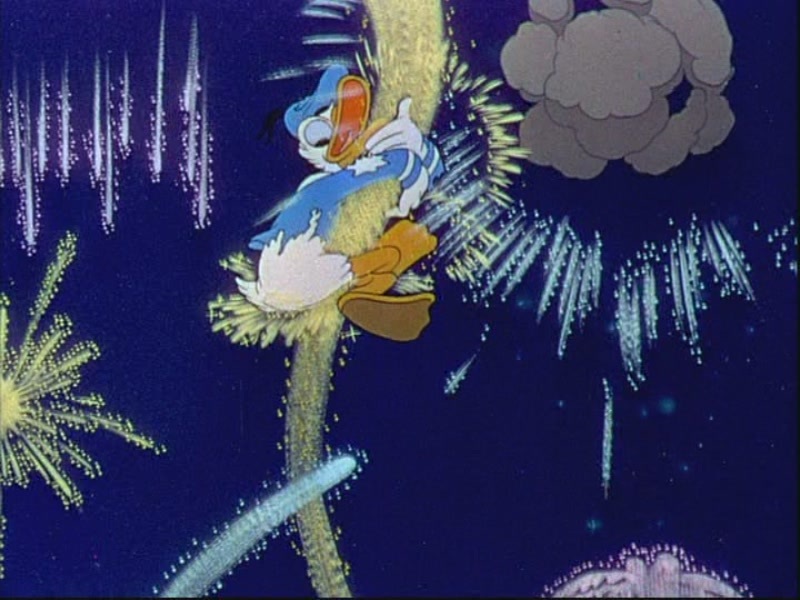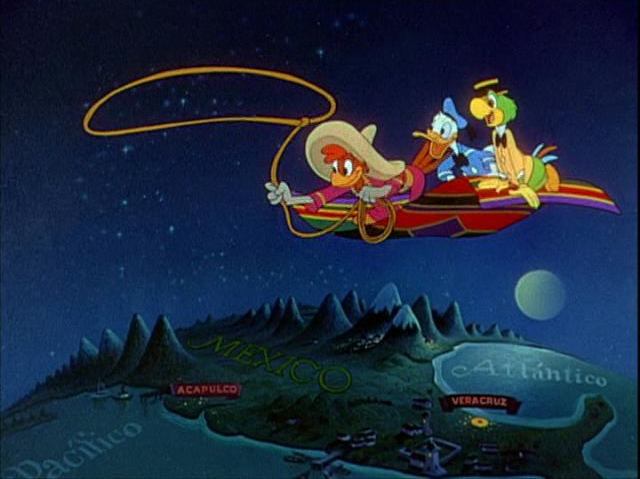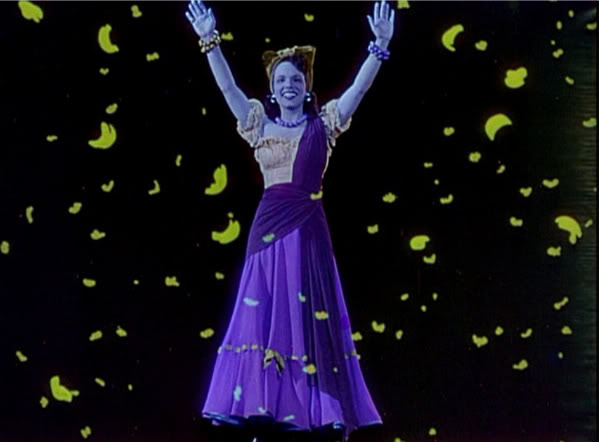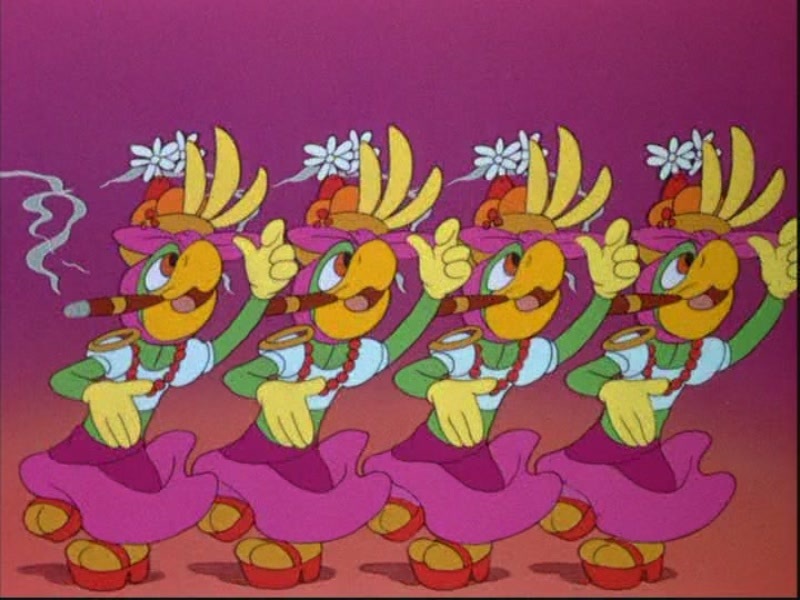Written for The Unquiet American: Transgressive Comedies from the U.S., a catalogue/ collection put together to accompany a film series at the Austrian Filmmuseum and the Viennale in Autumn 2009. — J.R.
After Orson Welles tried to implement Nelson Rockefeller’s
Good Neighbor policy with South America
in an unfinished episodic film, It’s All True (1942),
scandalizing both RKO and Latin American dignitaries
by focusing on poor and nonwhite characters,
Walt Disney dutifully offered a more conventionally
touristic and clearly segregated view of the
Continent, and succeeded spectacularly with the
same studio and many of the same dignitaries (as well
as with general audiences in both the U.S. and South
America) by offering this kitschy and visually extravagant
episodic, 70-minute film (1945), his first feature
to combine animation with live action. The title
pals are the infantile Donald Duck playing an American
tourist and the somewhat older Brazilian parrot
Joe Carioca and Mexican rooster Panchito, the latter
two playing Donald’s principal tour guides. The film
begins somewhat conventionally with tales about
Pablo, a South Pole penguin longing for warmer surroundings
who sails up the coast of Chile and Peru,
and a Uruguay boy gaucho who enters a flying donkey
in a race. But after about half an hour, the film
starts to mutate into a surrealist dream, around the
same time that live-action and libido enter the picture,
which leads in turn to various kinds of abstraction.
Ultimately the film turns into an exploding,
aggressive, imperialist fantasy worthy of
Busby Berkeley in which the South American
continent, especially Brazil (dominated by Carmen
Miranda’s sister Aurora) and Mexico, becomes
Donald Duck’s harem or (more implicitly)
brothel, including a long stretch of Acapulco
Beach populated exclusively by female bathing
beauties. Formally, this is one of Disney’s most
experimental efforts, comparable in some respects
to the Dance of the Pink Elephants in Dumbo. Directed
by Norman Ferguson.

